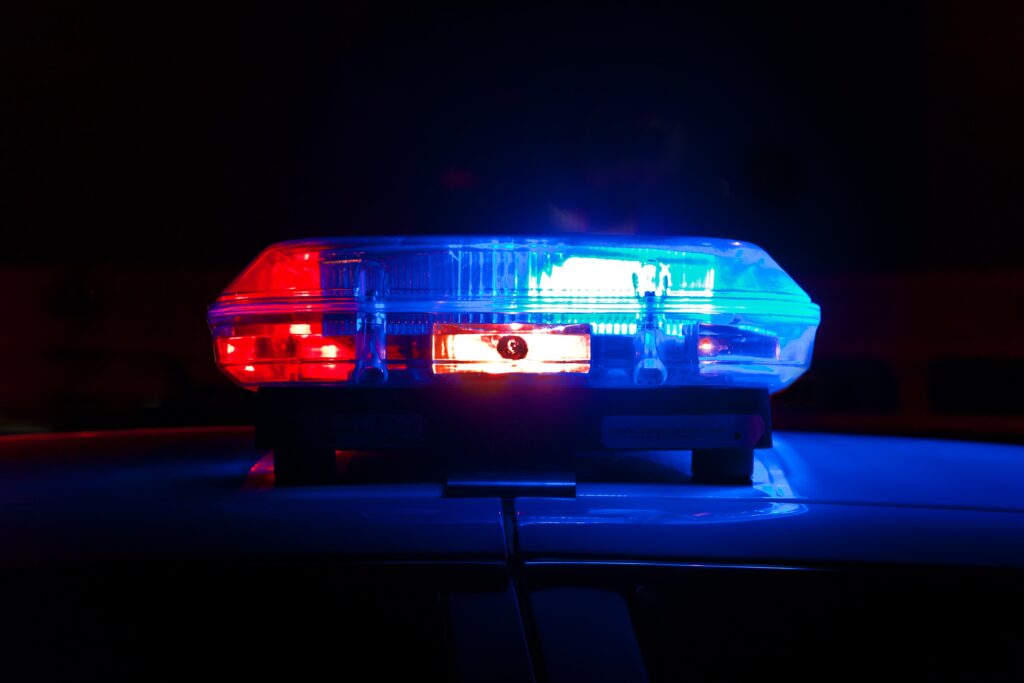
You know your day is going to be crappy when, on the way to work, you see blue lights in your rear view mirror and you hear that blaring siren “requesting” you take a break from your trip and speak with a police officer. You’re already late for work and you don’t have time for this. Anxiety and adrenaline is on the rise while you wait for the police officer to get out of his vehicle and approach yours. Your mind races to come up with something to say to the officer that will solicit some compassion. Hopefully he or she will just give you a warning. Probably not.
For the sake of being transparent I do have to admit long before I was a police officer, I received my first and only speeding ticket at the age of 17. I was on my way back after a break from my first year of Bible College in the Chester area of Virginia. I was en-route from the Tidewater area traveling on Route 10. While on the way, I was listening to the radio and thinking of classes the next day. It was a two lane highway and I was just coming down from a hill when I observed a State Police Cruiser coming the other way. I instantly looked down at my speedometer and to my horror I saw the needle had displayed I was traveling at 72 mph in a 55 mph zone. As he passed me I looked in the rear view mirror and saw his brake lights as he made a precision three point u-turn and proceeded to overtake me. Lights and siren felt like someone screaming at me that I got caught doing something wrong. The officer approached, introduced himself and told me the reason why he pulled me over. He then asked for my license and registration. All in all, he was very professional and polite. He went back to his vehicle and wrote the ticket. He had me sign it and told me what I needed to do to avoid coming to court. He then jumped back into his vehicle and we went our separate ways. I felt at that time my life, as I knew it, was over. My parents were going to kill me. When I got back to the dorm, I called my mom and let’s just say we had, in the past, somewhat more pleasant conversations than the one we had that day. I prepaid the ticket from my part-time job because that’s what I thought you were expected to do if you knew you were in the wrong. I believed at that time you should only go to court when you knew you were right. Otherwise, you were wasting the judges time.
Naturally, seeing what happens in court as a police officer has changed my views dramatically. As a retired police officer, if I ever get a traffic ticket, I will, if physically able, always go to court. I know I will have to take off of work (yes, I still work full time because I would not be able to make it on a cops pension), I will have to burn gas and maybe sit in court for most of the morning. Yet, even if I am found guilty and ordered to pay the full fine, I know I have affirmed my rights as a US Citizen to have my case heard in a court of law. Yet, sometimes even those who know they are guilty who go to court walk away from court with a not guilty verdict. Below are a list (not at all an exhaustive one) of things that may cause your case to be dismissed:
- The officer fails to come to court and has not called out.
- The officer has misplaced his copy of the summons and cannot recall the details,
- The officer fails to establish venue.
- The officer fails to produce evidence that rises to guilt beyond a reasonable doubt.
- The officer makes an error on the summons that would establish doubt.
- The officer is not aware of case law that would change the meaning in the state code.
- The officer is not completely clear on events in your case.
You can see that all of these reasons are because the officer made a mistake in your case. Police officers are human and they do make mistakes. That doesn’t mean, however, he was wrong in your case to pull you over and write you a ticket. It just means that he is still learning.
Now, before I continue, I know there are some that would bring morality up and think that what I am doing now is wrong attempting to help offenders avoid responsibility for what they have done. If they knew they were wrong, they should just prepay the fine and not waste peoples’ time. However, did you know that you will pay court costs whether or not you go to court. If you are found guilty, you will pay court cost. So why not go?
Having a Bachelors Degree in Pastoral Theology, I really understand where they are coming from. However, having the experience as a police officer, I have come to understand the law and the court (although many laws are established for moral purposes) do not necessarily utilize morality in their enforcement and findings of guilt or innocence. I have seen judges make rulings that I fully believe that they just weren’t right, morally. But most times it was decided just according to the law.
Another thing to think about is that we have two Constitutional rights that come to play here–that we are innocent until proven guilty, and the right to confront our accusers. Again, these are rights. You have a right to come to court even though you know you are guilty as sin. You have a right to put up a defense and confront your accuser in court even though you know you are guilty as sin. It is the police officer who is bringing forth your case. He bears under the burden to produce proof beyond a reasonable doubt. It is not enough for you to know you are guilty, but the police officer must do everything within the confines of the law and his departmental policy or he is improperly bringing forth this case. It is his (I’m sorry, or her) responsibility to maintain proper protocol inside the perimeters of legal requirements for his presentation to be considered ironclad and that the offender to be found guilty. Your rights are your rights. Use them or lose them.
This brings me to the subject that we are all innocent until proven guilty in a court of law (this sentence brings flashbacks to Law and Order, of which I am a fan). This right is specifically applicable when you stand before the judge and he (again, or she) asks you how you plead. In the courts I presented my cases in, you had three choices: Guilty, Not Guilty, or No Contest.
In our courts, before the docket began, the judge will explain that if one pleads Guilty, he will just find that individual guilty, assess a fine (or in some instances, jail time, or both) and you either go to the clerk to pay your fine or you go with the nice deputy who will allow you to borrow his shiny bracelets to wear. The judge will tell you if you plead Guilty, you are giving up your right to confront you accuser, the right to have your case heard, and also the right to offer any evidence, explanation, or excuse of your illegal behavior. Even with that explanation, there would be some people that will plead guilty and that would be it. I thought that it would have been better if that individual would have prepaid so he wouldn’t have had to use his gas, take off from work and so forth.
The third one is No Contest. All that means is that the offender has no issue that the officer did everything he was supposed to do, and if the officer would have testified, the evidence would be sufficient to convict him. However, the offender does want to tell his side for the benefit of compassion, leniency, or maybe taking a driver improvement course, anger management course, shoplifters course, etc. This plea is also used by offenders who do not feel right pleading not guilty if they feel they are, indeed, guilty.
Jumping back to the second one is Not Guilty. This is one of the most misunderstood concepts when people go to court. When you plead Not Guilty, doesn’t that mean in your heart of hearts you know you are not guilty? If you plead Not Guilty, and you know you are guilty, isn’t that lying? The answer is that what you think about the situation doesn’t matter when it comes to the plea. Remember the right to be innocent until proven guilty? All pleading Not Guilty does is tell the judge you wish to maintain you innocence until the officer (or in some cases the prosecutor) proves your guilt beyond a reasonable doubt. You WILL NOT be charged with perjury if you plead Not Guilty and you were found Guilty. It is your right to maintain your innocence until the evidence finds you otherwise. What it does, it forces the officer to produce evidence that would be so convincing that a reasonable doubt does not exist. If he fails to do this, the judge will have no choice but to dismiss your case.
In the next three blogs, we will explore the traffic stop, preparing defense in court, and the court trial. Once again, I must remind you that what I am revealing to you is NOT legal advice, and that the best legal advice comes from your attorney. You can follow all of my suggestions and still be found guilty. At least, when you go into court, you will be somewhat educated in what to expect.
++++++++++++++++++++++++++
DON’T LET YOUR ATTACKER GET TO THIS POINT–PROTECT YOURSELF NOW AND
CLICK BELOW!!


Your article helped me a lot, is there any more related content? Thanks! https://accounts.binance.com/fr/register-person?ref=T7KCZASX